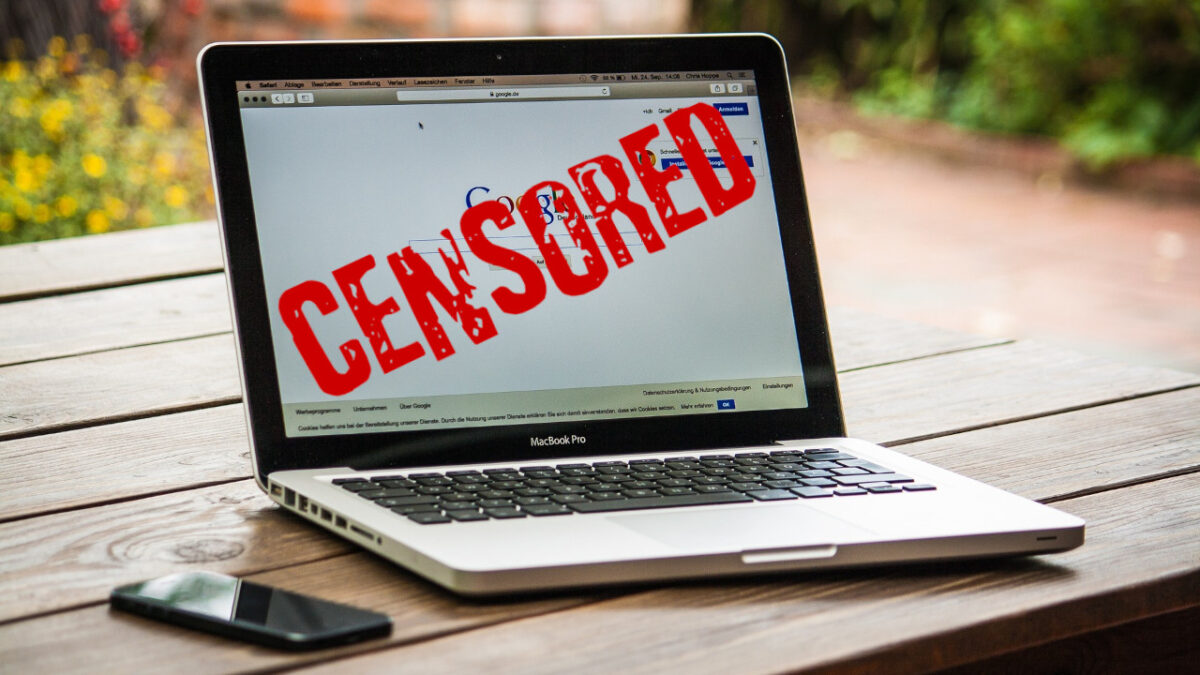I’m a free speech absolutist.
Some people misconstrue my principles because I have supported certain limitations on the content disseminated to minors by government schools and libraries, but that’s because I support limiting government institutions — not because I support infringing on the free speech of individuals.
Yes, government should police itself and set standards for what content it supports and disseminates (especially to minors.) That issue is entirely separate from government attempting to police content created and distributed by and among individuals. That shouldn’t happen. At all. (It should go without saying that defending free speech does not mean supporting content creation involving actions that violate another person’s rights.)
I unreservedly oppose laws that attempt to prohibit, censor, or age-gate access to content on the internet. I also vehemently oppose laws that attempt to prohibit advertising or promoting goods and services — even when those goods and services do not find favor in the eyes of politicians.
Standing up for free speech isn’t about protecting popular speech. It’s about protecting unpopular speech.
In Snyder v. Phelps (2011), the ACLU came to the defense of Fred Phelps and the virulently anti-gay Westboro Baptist Church (can you believe it?) and argued that protecting free speech was more important than shutting down offensive behavior. Steven Shapiro, who served as the ACLU’s legal director at the time, succinctly explained why the organization chose to defend the protestors’ free speech even when it strongly disagreed with the protestors’ message.
“The First Amendment really was designed to protect a debate at the fringes. You don’t need the courts to protect speech that everybody agrees with, because that speech will be tolerated. You need a First Amendment to protect speech that people regard as intolerable or outrageous or offensive — because that is when the majority will wield its power to censor or suppress, and we have a First Amendment to prevent the government from doing that.”
Free speech shouldn’t be a partisan issue. People on all points of the political spectrum have beliefs and opinions that others find offensive. The force of government should not be wielded to silence or censor anyone’s voice, no matter how unpopular or offensive it may be.
Unfortunately, standing up for free speech has itself become quite unpopular as of late. Most on the left have abandoned civil liberties and now favor criminalizing what they deem “hate speech” and forcing individuals to use the “preferred pronouns” of those suffering from delusional disorders.
Meanwhile, the populist right has also abandoned individual liberty in its quest to reshape society at the point of a gun. They want to ban pornography, mandate filters on all internet-connected devices, kick kids off of social media, prohibit advertising certain goods and services, and shut down TikTok.
Both sides have embraced tyranny, leaving those of us who favor true, unfettered liberty in an ever-shrinking minority. (I certainly hope those of us who are left can reverse this destructive trend before even articles as benign as this one are outlawed.)
I encourage everyone to think long and hard before siding with those who advocate infringing on free speech, because even if what the state may censor today offends you, the power you grant the state to censor will eventually be turned against you and the content you care about as well.
“I disapprove of what you say, but I will defend to the death your right to say it.”
Evelyn Beatrice Hall, The Friends of Voltaire (This quote is often misattributed to Voltaire.)





